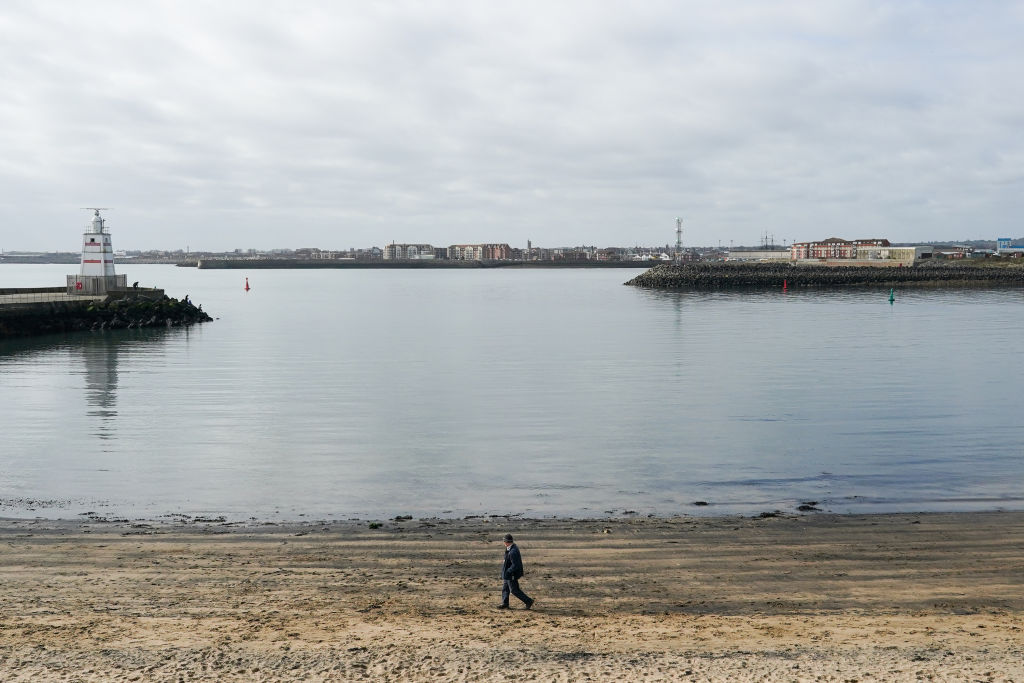Ah, Hartlepool. The by-election there brings back memories: I am old enough to have reported on the last one, back in 2004, when Peter Mandelson went off to Brussels and left behind what was then a fairly safe Labour seat.
My slightly faded memory of that 2004 vote informs my view of what is apparently the most important question in British politics today: who will win the latest Hartlepool by-election? And my view is this: it doesn’t really matter.
To explain what I mean by that, let’s go back to that 2004 by-election, where a bright young local lad called Iain Wright (he’s now 48 and retired from politics) saw off a solid challenge from the Lib Dems in the form of Jody Dunn, an earnest, accomplished barrister who thought it was a good idea to write a blog about canvassing in the town, recounting how everyone she met was either drunk, accompanied by an angry dog or undressed – ‘and in some cases two or more of the above.’
The 2004 results:
LAB – 12,752
Whatever the result, the fact that spinners are duelling over the latest Hartlepool vote is a sign that an awful lot has changed since 2004
LIB – 10,719
UKIP – 3,193
CON – 3,004
Note that last number. In 2004, Jeremy Middleton, the Conservative candidate in Hartlepool, finished fourth with less than 10 per cent of the vote.
Now, back to 2021. Today, Labour and Conservative spinners are playing the usual games of expectation management about the latest Hartlepool result; a lot of clever people seem to expect a Tory win, but clever people can be wrong just as easily as others, and maybe more so, since they find it harder to accept that they don’t know things.
And the truth of most by-election reporting and commentary is that the people doing it don’t really know what’s going on. Reporting by-elections well is damned hard; predicting them harder still. At best, as a journalist, you can cobble together a few nice vox pop quotes with some (always questionable) accounts from political insiders who, if they were honest, don’t really know how the vote will go. From such straws does journalism make bricks that are laid one on top of the other until a narrative is built.
The tallest tower of speculation currently faces towards a Tory win. I have no idea how likely that is. But I also know that it doesn’t really matter. Not in the grand scheme of things.
And that wider context is found in those numbers from 2004. Once upon a time, not too long ago, the Conservatives were struggling to be an also-ran in Hartlepool. If someone writing about that by-election had predicted that a Conservative candidate (let alone one from well outside the constituency) would be competitive in Hartlepool little more than 16 years later, they would have been laughed out of town. Whatever the result, the mere fact that the spinners are duelling over the latest Hartlepool vote is a sign that an awful lot has changed since 2004.
By-elections are hard to predict partly because of turnout. No one really knows how many people will bother to vote, and the individual decisions of a relatively small number of people (even a few hundred, potentially) can make all the difference to the result. That is one of the reasons not to read too much into the exact outcome of the by-election: a close Conservative gain really has about as much significance as a Labour hold by a similarly small margin.
And how much significance would that be? Well, another of those nice narratives says that politics is undergoing a fundamental shift, with the Conservatives re-orientating themselves further into the old working-class Labour heartlands.
There’s certainly a lot of substance to that narrative: Boris Johnson has indeed continued the strategy of Theresa May and made the Tory offer one that can be summarised as ‘a bit to the Left on economics, a bit to the Right on culture.’ And that offer worked pretty well for a man called Tony Blair for a long time, so why not Boris? As long as he can keep small-state Conservatives onboard with his big state agenda, Johnson’s well-disguised neo-Blairism could well capture new ground for his party.
It could also pose some big strategic challenges for Starmer. The logic of a Conservative party advancing into the socially-conservative Labour homeland with a bigger, more generous state is for Labour to aim for the territory such Tories cede: more affluent, liberal places with lots of graduate voters and a history of choosing between the Tories and the Lib Dems. The near-certain defeat of the Conservative candidate in the London mayoral election and likely success of Labour in the London assembly elections shows that Johnson’s blue-collar Toryism is not cost-free for his party. He may win places like Hartlepool but eventually lose places like Guildford. Is that a trade the Conservative party is really prepared to make?
I don’t think it’s impossible to imagine a British political scene dominated by a Conservative party that’s slightly left of centre on economics, right of centre on social issues and reliant on older, poorer voters without university degrees, and a Labour party that absorbs the Lib Dems and Greens to capture the support of most degree-holding urban and suburban voters. That would be a proper realignment.
But will Hartlepool’s signpost point clearly to that future? Or will it just reflect the temporary relief of an electorate emerging from a horrible pandemic thanks to a time-limited vaccination programme that enjoys almost astronomical levels of public support?
The awkward truth for narrative-builders is that whatever the result, what happens in Hartlepool will mean something – but quite what won’t be clear for a few years yet, and certainly not tomorrow when you read the first draft of this chapter of history.







Comments